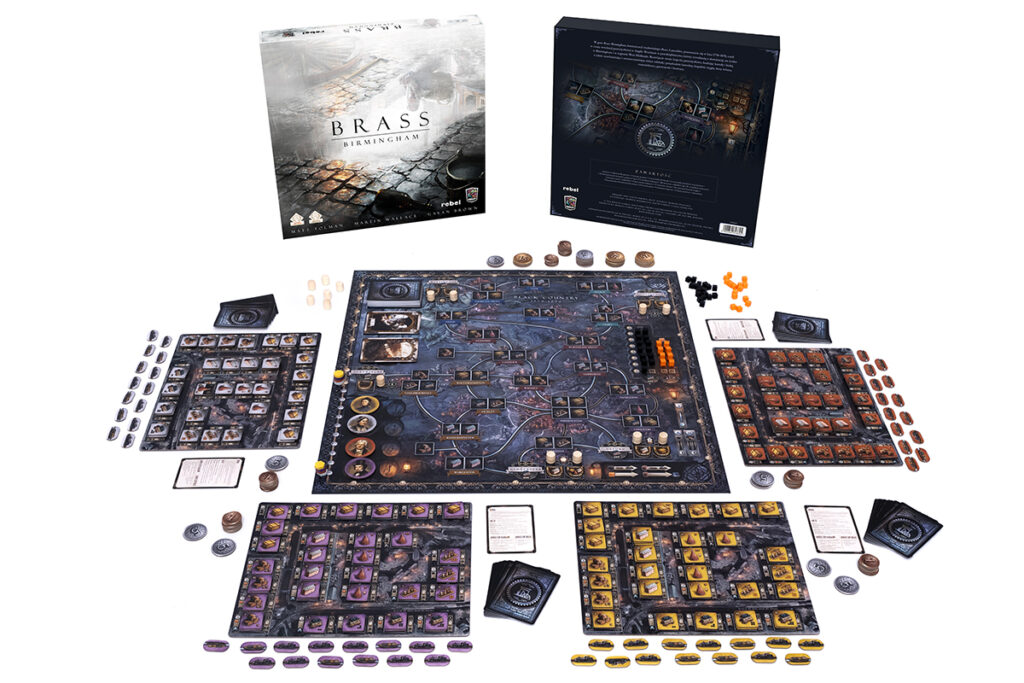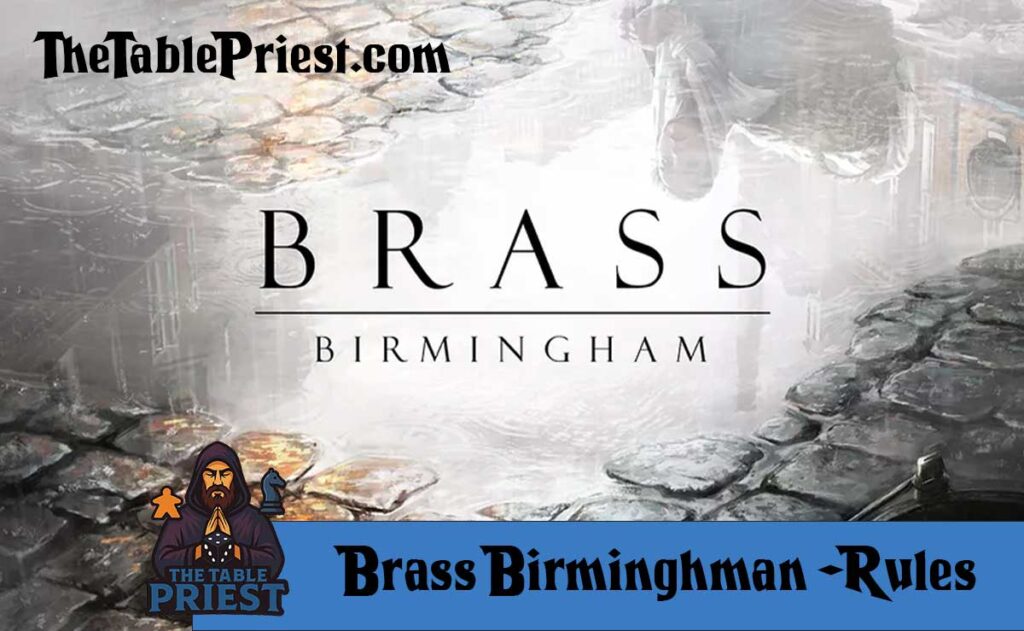Brass: Birmingham is a competitive economic strategy game for 2–4 players set during England’s Industrial Revolution. You’ll expand your network across the West Midlands through the Canal Era and the Rail Era, build and develop industries (Coal, Iron, Cotton, Manufacturers, Pottery, and Breweries), secure access to Coal/Iron markets, and time your sales using precious Beer to flip tiles, raise income, and score big through your links and developed industries.
Key Features:
- Two Eras, One Network: Play through the Canal Era (canal links) and the Rail Era (rail links). Each era ends with scoring for your links and flipped industry tiles, then the game resets key pieces for the next phase.
- Six Industry Types: Build Coal Mines, Iron Works, Breweries (Beer), Cotton Mills, Manufacturers, and Potteries. Flipping these tiles increases income and adds end-of-era VP.
- Beer Economy: Most sales (Cotton/Manufactured Goods/Pottery) and some Rail networking require Beer. Use your own Breweries anywhere, or connected opponent/merchant Beer when available.
- Market Dynamics: Consume Coal from connected sources or the Coal Market; consume Iron from any Iron Works or the Iron Market. Building Coal/Iron can immediately sell cubes to the market for cash.
- Hand-Driven Actions: On your turn, take two actions by discarding cards: Build, Network (place links), Develop (remove lower tiles), Sell (flip goods tiles using Beer), Loan (gain £, lower income), or Scout (gain wild cards).
- Overbuilding & Positioning: Replace your own earlier tiles to access stronger industries, or (with conditions) overbuild opponents’ empty Coal/Iron. Timing links and adjacency is crucial.
- Income vs. VP: Money fuels building and linking; flipping tiles increases income. VP comes primarily from your links and flipped industry tiles at the end of each era.
- Elegant Pace: Two actions per turn; the deck running out ends the era. Careful card use (locations/industries/wilds) creates tactical flexibility.

Gameplay Overview:
Across both eras, players alternate turns taking two actions per turn by discarding cards. Build industries in connected locations, extend your Network with links, Develop to remove early tiles and unlock stronger ones, take a Loan when cash is tight, Scout for wild flexibility, or Sell to Merchants to flip Cotton/Manufacturers/Pottery—usually consuming Beer. You’ll pull Coal from connected mines or the Coal Market and Iron from any Iron Works or the market as required. At the end of each era, score your links (each link scores for every developed town/city it connects) and your flipped industries, then reset: remove Canal links and level-1 industry tiles after the Canal Era, keep your income/handflow moving, and surge into the Rail Era for a higher-scoring finish.
Why it shines: Everything is interconnected—Beer routes your sales, Coal enables building and rails, Iron speeds development, and links turn everyone’s flipped tiles into your VP. Smart timing of sales, market hits, and network expansion makes the difference between a middling engine and a game-winning boom.
Need rules for more Board Games? Find them in our Board Game Rules section.
Read the Brass: Birmingham rules online here:
Download Brass: Birmingham rules & reference PDFs:
🇬🇧/🇺🇸 – English Rules Sheet (EN)
🇬🇧/🇺🇸 – English Reference Sheet (EN)
🇩🇪 – Deutsch Regelübersicht (DE)
🇩🇪 – Deutsch Referenzblatt (DE)
Links to more rules:
Explore all rulebooks in the Board Game Rules archive.
Popular picks: Hegemony Rules • SETI: Search for Extraterrestrial Intelligence • Ark Nova Rules

